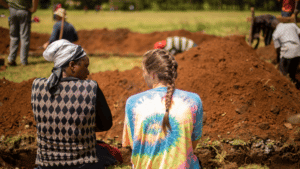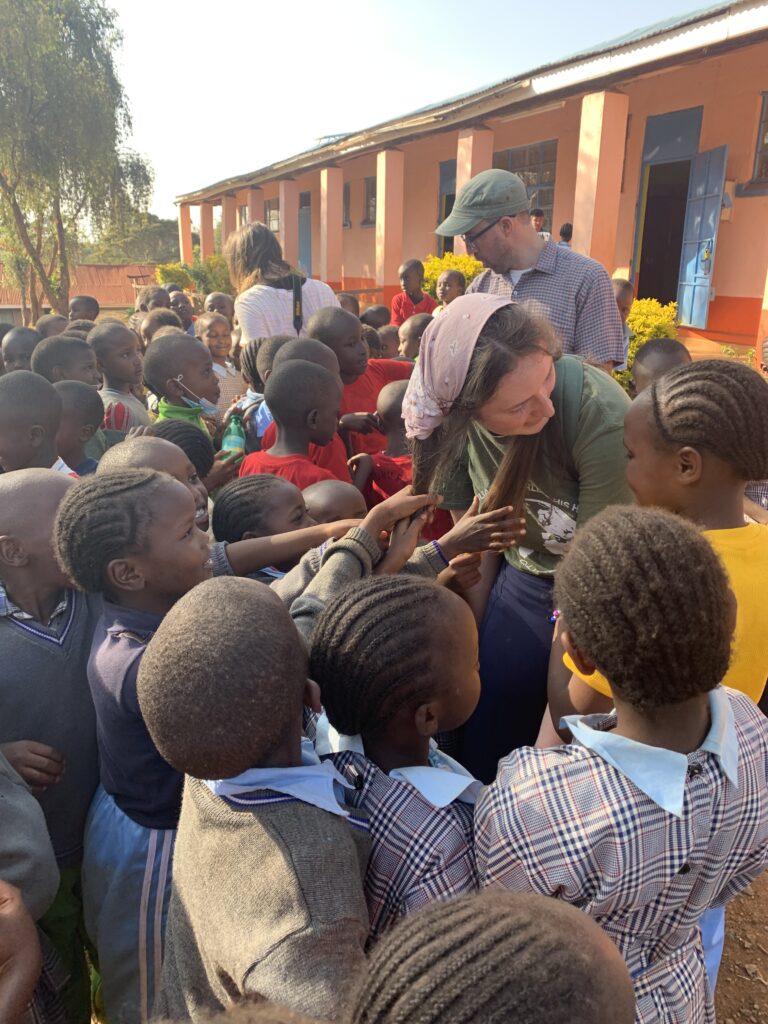Where’s the Invitation?
It’s one thing for development organizations like 410 Bridge to say that relationships are paramount. The tricky part is how to do that.
In my new book – If You REALLY Want to Help – I talk about the importance of being invited into partnership with a community.
The ACCORD Network – an association of faith-based relief and development organizations – has as one of its core principles that organizations looking to help the poor should enter as guests, co-labor as partners, and depart as friends.
Unfortunately, many well-intentioned do-gooders, loaded down with their limited resources, a sense of urgency, and overflowing emotions, have a hard time applying this principle when boots hit the ground.
Relationships First
The first thing to understand is that projects, no matter how large or small, should be the fruit of the relationships we build, not the other way around.
Do we use projects in hopes of building a relationship? Or do we build a relationship, learn about the people, their vision for their future, their strengths, and then follow their lead toward solutions?
This takes time and patience; something our side of the bridge struggles with.
It’s the ‘enter as guests’ part of the ACCORD principle that gets overlooked. Sure, we’ll give it lip service, but then say things like, “Of course we were invited. We’re here to help and who wouldn’t want our help?”
Guest or Savior?
But if we’re brutally honest, we don’t think of ourselves as guests. We see ourselves as saviors – the cavalry charging over the hill to save the day.
That may be appropriate in times of a catastrophe – flood, earthquake, conflict, etc. – but in a development context, indigenous leadership and community participation lay the foundation for indigenous sustainability.
If we get this wrong, we also create a power imbalance between the giver and the receiver.

As I outline in my book,
“One of the ways to prevent this imbalance is to be invited into a relationship by the people we seek to help. When the receiver—the one experiencing need—invites someone into a relationship, they are less likely to see the giver as “them” or “those people” and more likely to seeing the giver as “us.”
The tricky part is for the giver to continue to subordinate their hoped-for solutions for the receiver to solutions that the receiver thinks are best. After all, we’ve been invited into their reality, not ours.
It’s like being invited to a party and then barreling in the door and spending the whole evening suggesting ways that the host could make the party better. Not only will you make the party extremely unpleasant but also you will do some serious damage to your relationship with the host. “
Guests are invited. A list of needs or projects that they want you to undertake is not an invitation.
Showing up, pointing out all the problems that we see, and announcing how we plan to help is not an invitation either.
A Vision for the Future
In 410 Bridge communities, an invitation is a formal written request to visit a community and get to know one other. We learn if they have a vision for their future, what they’re doing to accomplish that vision, and their commitment to mobilize and unify their community.
They learn what it means to be a 410 Bridge community; what we will, and will not, do. But it doesn’t end with the first invitation. After that initial meeting, if they want to partner, we ask for a formal invitation from the leaders of the community.
We believe we should limit our efforts to those actions and attitudes that enhance trusting relationships with our partner communities. So, we enter a place only when we’ve been invited.
We do with, not for. They lead, we follow.
We allow them to stumble, grow, and fail. And we work at their pace, not the donors.
And What About Short-term Trips?
The same principle applies.
Are teams invited, or are we just crashing the party?
One of the ways to verify this is to be honest about the itinerary. Who created it?
Is the community asking you to participate in what they already have going on, or are you telling them what you want to do when you’re there?
If it’s the latter, you’re a party crasher.
Listening First
Over the years, we’ve learned that entering as an invited guest takes time. It starts with a conversation – questions, not answers, and a bunch of listening.
In the end, those questions ensure that our work together is the fruit of the relationship, not the result of some State-side solution to give a bunch of well-intentioned Westerners a life changing experience helping the poor with stuff they don’t really need or want.
Take the time to get to know one another. When you show up uninvited, you crash the party. But when you’re invited, you’re welcomed and wanted—and on your way to a healthy, fruitful partnership.
In his book – If You Really Want to Help – Kurt lays out a fresh blueprint for redefining the war on poverty, how to win it, and how we fight the battle together. His book will be released February 28, 2023 and is available for pre-order here.




